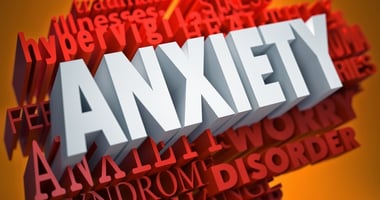Patients Not Fully Responsive to Antidepressants, CBT Alone Found to Improve With Combined Therapies
 |
“The sequential combination of CBT or antidepressant medication for patients who do not achieve remission with monotherapy is an effective approach for outpatients with major depression, and the sequence in which the treatments are applied does not appear to affect end-of-treatment outcomes,” wrote lead author Boadie Dunlop, M.D., of Emory University and colleagues.
The findings were based on the second phase of the Predictors of Remission in Depression to Individual and Combined Treatments (PReDICT) study. In the first phase of PReDICT, Dunlop and colleagues randomly assigned 344 adults with depression to 12 weeks of treatment with escitalopram, duloxetine, or 16 one-hour individual sessions of CBT. Patients who did not achieve remission of their depression after 12 weeks (defined as a score of 7 or lower on the Hamilton Depression Rating Scale, or HAM-D) were invited to continue in the second phase of the study—a 12-week treatment period in which they received a combination of medication and CBT. In this second phase, patients who initially received escitalopram or duloxetine (n=75) continued their medication and received 16 sessions of CBT. Patients who initially received CBT (n=37) continued receiving monthly CBT sessions and began taking escitalopram daily.
By the end of second phase of the study, 64.9% (24/37) of the patients initially assigned to CBT and 60% (45/75) of those initially assigned to an antidepressant achieved remission. The rate of remission following combination therapy was significantly higher among patients who showed some response to monotherapy in phase 1 of the study (61%) than among patients who did not respond at all to monotherapy during phase 1 (41%).
Dunlop and colleagues also found that, as in previous research, more severe depression at baseline was associated with a lower chance of achieving remission. However, after controlling for severity of depression, the researchers found that higher levels of anxiety, both prior to monotherapy and prior to beginning combination treatment, predicted poorer outcomes for both treatment groups.
“These results suggest that previous studies that identified depression severity as a negative predictor of outcome should be reanalyzed to examine whether the results persist after controlling for anxiety,” they wrote.
To read more about the PReDICT study, see the Psychiatric News article “CBT, Antidepressants Are Equally Effective in Treatment-Naïve Patients” and the American Journal of Psychiatry article “Effects of Patient Preferences on Outcomes in the Predictors of Remission in Depression to Individual and Combined Treatments (PReDICT) Study.”
(Image: iStock/FilippoBacci)






